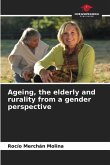The phenomenon of longevity in the world has had significant social and economic repercussions. It is a process that develops according to the characteristics and specificities found in the various countries of the world. The World Health Organisation (WHO) has defined elderly people in developing countries as those aged 60 or over, and in developed countries as those who have reached the age of 65. In the Brazilian context specifically, we consider the formation of developed and developing regions, while there are realities characterised by economists as underdeveloped. The quantitative and qualitative data was analysed based on the theoretical framework, specifying ageing in the city of Manaus. Through a survey of the protection network, we identified poor old age, without affective-family ties, without the guarantee of social security. Passers-by in institutions, demanding programmes and services that are not delivered. Physically or mentally dependent.
Bitte wählen Sie Ihr Anliegen aus.
Rechnungen
Retourenschein anfordern
Bestellstatus
Storno








